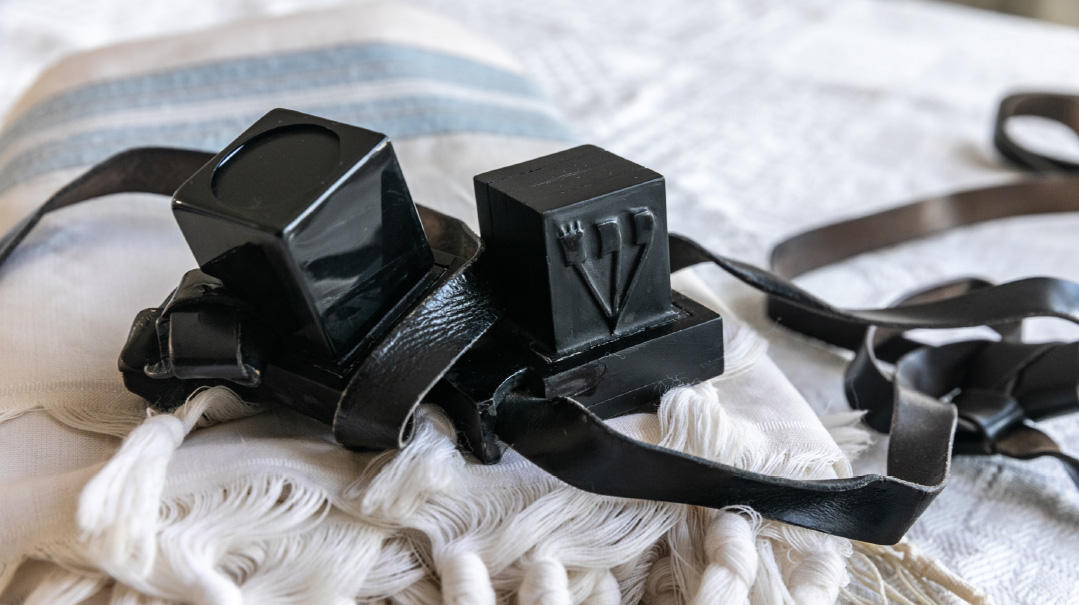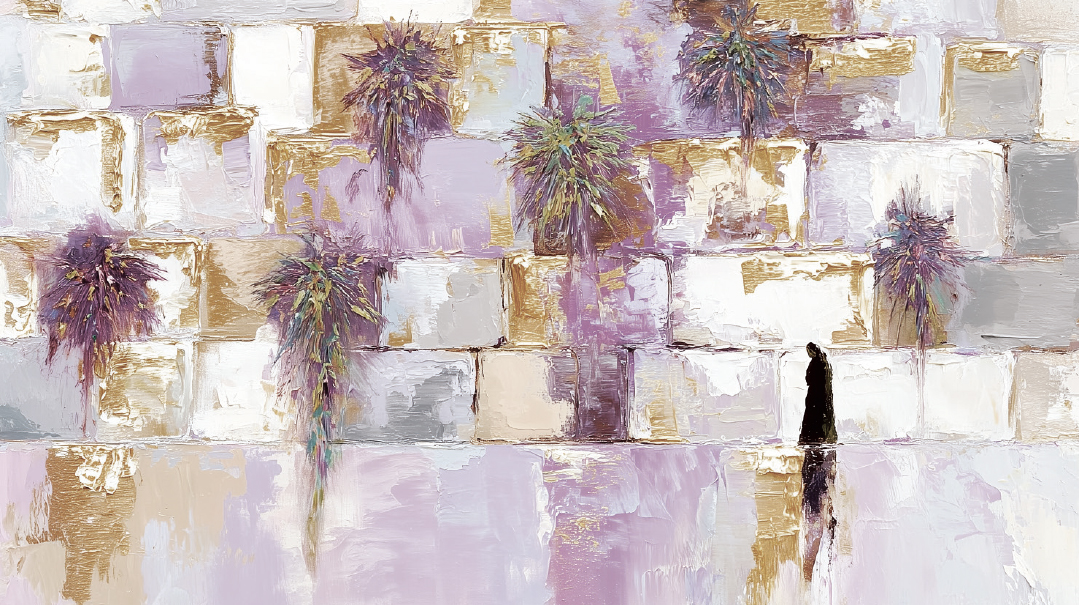At a Loss for Words

In the moment I became an orphan, I learn something — something priceless and powerful

It's December 2002, and I’m walking through the airport terminal with my rebbi.
“Whatever you do, Zechariah, do not say, ‘I’m sorry,’ ” my rebbi says to me as we board the plane.
“Of course not,” I reply.
“Do not say, ‘I’m sorry,’ ” my rebbi whispers while the flight attendant gives her seatbelt-buckling presentation.
“I won’t,” I whisper back.
“Do not say, ‘I’m sorry,’ ” he says as we get into the cab.
“Got it,” I assure him.
As we walk up the driveway to the house, he looks me straight in the eye and says very sternly, “Remember, do not say, ‘I’m sorry.’ ”
“Trust me,” I say, “the last thing I would do is say I’m sorry.”
My rebbi knocks lightly on the half-open door and we both walk down a narrow hallway leading into a big dining room. My friend sits with his brothers on low stools. He is wearing a torn jacket, looking through photo albums of his deceased father. My friend slowly turns toward me.
My brain freezes. I hear my rebbi warn me behind my back, “Zechariah, do not say…”
“I’m sorry,” I half yell, and my friend bursts into tears.
I’m only 15 at the time and know nothing about loss, about pain or suffering. I live in a world that consists of learning, sleeping, and more sleeping. In my world, loss refers to someone who came a little too late to the cholent pot. My “I’m sorry” declaration to my friend reflects my ignorance of true loss.
Subconsciously, I am not trying to comfort him at all; I’m just reacting to the fact that his father’s death makes me feel guilty. Hence the words, “I’m sorry.”
It’s March 2005, and you can feel spring in the air. The season of regrowth, of hope, and rebirth. Inside the shivah house I’m visiting, it is anything but that — just the opposite. A young boy who has just become bar mitzvah, who had so much potential, has died from a brain tumor. The father is sitting there quietly, his eyes unfocused and wet from crying.
I’m 18 now, old enough to know not to apologize for the boy’s death. But I have no idea what to say.
What do you say to a man who held this child when he was born, who hugged him when he fell, and who carried him on his shoulders? What do you say to a man who had to explain to his own child that he is terminally ill with only three months to live? And what do you say to a man who fell to his knees crying hysterically at the foot of the bed upon which his dead son lay?
I observe other people for some ideas, but everything feels wrong. One person is trying to relate to the father with his own experience of his grandfather’s death at the age of 92. Another says, “Don’t worry, from now on you will have many simchahs.” And a third begins to pepper the father with questions about the day his son died, from the exact time of death to the color of the nurse’s Crocs.
At one point it’s just me and the avel sitting there. The tension in the room is palpable. My mind races.
What do I say? What do I say? What do I say?
Three more people walk into the house and I get up to leave. I mumble, “HaMakom yenachem” to the father and quickly head out the door.
It’s March 2010, and I’m sitting next to my father, who is in hospice. His skin is yellow because his liver is shutting down and toxins are quickly spreading through his body. He can’t talk anymore — he just makes these moaning sounds every now and then. His eyes dart around the room, looking at my family and me.
He gasps for air.
My stomach drops as I realize what’s happening. A few seconds pass, and he gasps one more time.
And then he dies. And my heart splits in two.
For the first time, I experience real, raw, torturous pain. Endless waves of unrelenting pain that leave me doubled over, breathless. Sharp pain that cuts through me as I slowly digest the fact that I will never, ever see my father again. And the pain that I feel as my entire world shatters in front of my eyes.
But in the moment I became an orphan, I learn something — something priceless and powerful. Something that will change my perspective of how I view loss. I finally understand exactly how to comfort another human being.
You see, the underlying reason that losing a loved one hurts so much is the bereaved family members feel completely and utterly alone. They have left the reality in which most of us live and have entered a reality of pain, a reality shrouded in darkness with seemingly no way out. If only there was a way not to feel so isolated, not to feel totally separated from the rest of the world, that would be the first step in helping relieve their pain.
That is precisely what being menachem avel is all about. Not to be a walking motivational quote, not to share the perfect Hashgachah pratis story, not to present the avel with the world’s best TED Talk. All you need to do is simply be there for the other person.
You know why Chazal instructed us to say HaMakom yenachem es’chem b’soch she’ar aveilei Tzion v’Yerushalayim? Because those are the only words we are supposed to say.
It’s March 2015, and I’m sitting in a tiny dining room with some of my friends. Our friend’s father has just died after a long battle with leukemia. This shivah is unique, because he lost his mother three years ago; he is now a full-fledged orphan. And to make things worse, he has no siblings.
For the next few hours, my friends and I just sit there with him. We sit there as he reminisces about what life was like growing up, when both of his parents were still alive. We sit there as he recounts stories about his father. We sit there as he chokes up mid-sentence and lets out a heartrending cry.
We don’t say a word the entire time.
At some point, my friend catches my eye and gives me a little smile. And I can tell that we’re comforting him. I can tell that he has just realized what we wanted him to realize: that although he is the only one left in his family, although he is all by himself, although he is completely on his own, he is never, ever alone.
Zechariah Saltman is a writer, humorist, and CEO of ZipZac CopyGroup. He lives with his family in Lakewood, New Jersey.
(Originally featured in Mishpacha, Issue 1024)
Oops! We could not locate your form.






